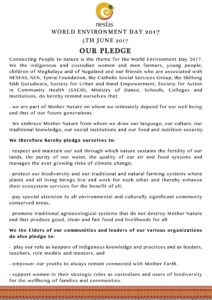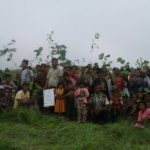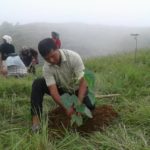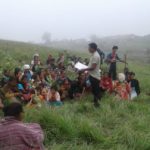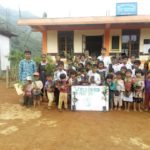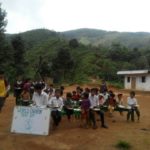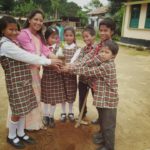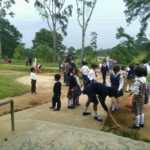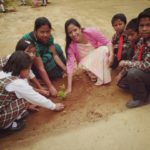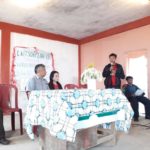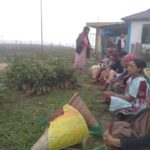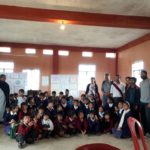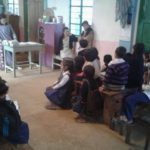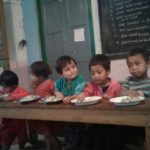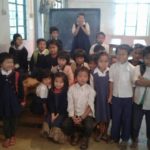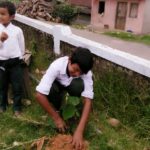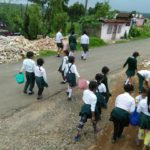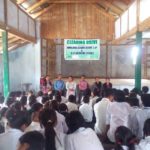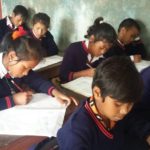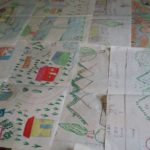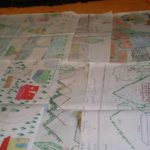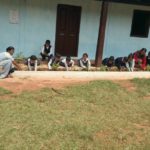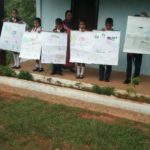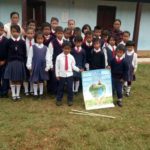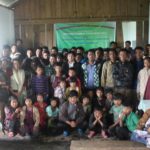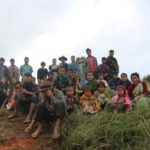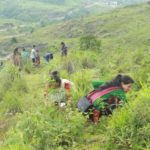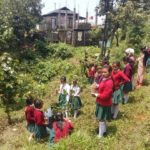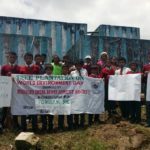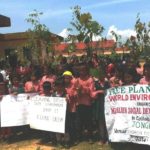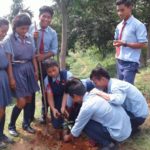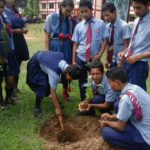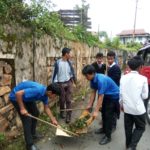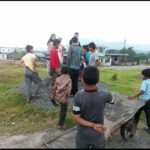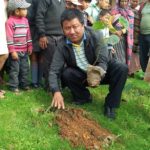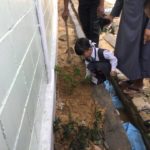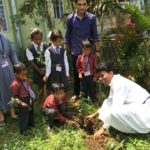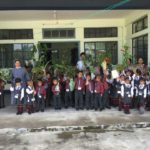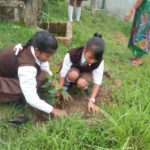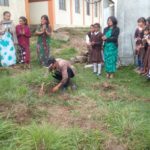It started in 2016 when Mawhiang village in West Khasi Hills requested NESFAS to join in the celebration of the World Environment Day. They decided to dedicate a community land to plant local tree varieties with support from NESFAS. More than 85% of the trees planted survived, a much higher record than what is achieved on an average in the State. This year, NESFAS and Mawhiang Village decided to use the World Environment Day to replant local trees in areas where there was no growth. NESFAS also got in touch with Khweng Community to celebrate 2017 World Environment Day. Bah Phrang Roy who arrived from Rome on 26 May suggested that we contact other communities also in Meghalaya and Nagaland to plan collectively on how to celebrate the 2017 World Environment Day on 5 June. This year’s theme is “Connecting People to Nature”. Ten partner organizations of NESFAS responded positively along with more than one hundred communities. The communities and organizations are from East and West Jaintia Hills, East and West Khasi Hills, Garo Hills, Ri-Bhoi Districts, and from Chizami District of Nagaland, North East Network (NEN), the Catholic Social Services Group, the Shillong Sikh Gurudwara, Society for Urban and Rural Empowerment (SURE), Tynrai Foundation, Society for Action in Community Health (SACH), Ministry of Dance, Schools, Colleges and Institutions.
The communities have organized various activities, at their own villages, for the auspicious event with the aim to promote: “Better Environment, Better Soils, Better Tomorrow and Best for the Planet”. The initiative is highlighted through their firm actions and with the main emphasis on awareness creation for further actions for THE FUTURE WE WANT.
It starts today, for these communities, individuals, and organizations that are connected, to come forward for an action towards a better tomorrow. The day reminds the indigenous groups, young and old, men and women, and the different organizations that they are part of Mother Nature.
Some of the activities for the day’s celebration include composting, art competition, tree planting, agro-biodiversity walks, eat-in, cleaning drives, and much more.
All this planning led to the drafting of a PLEDGE which has also been circulated internationally. NESFAS has received very strong endorsements from interested individuals in Oxford, UK, Standford USA, Maya Intercultural University of Quintana Roo Mexico and Coventry Universities and from many communities from Latin America, USA, Europe, Africa, Asia, South India and the South Pacific. Many of these indigenous organizations and their allies have stated that it will be translated into their local languages and will be read out to their communities that will be celebrating the World Environment Day.
“Although the world at large marks the day, it is the indigenous peoples, the traditional farmers, the gatekeepers of biodiversity, the holders of traditional knowledge who are the closest friends of Mei-Ramew, our Mother Nature” says Francisco Rosado May, a Maya agroecologist visiting NESFAS.
“We are very pleased that the pledge that was initiated by NESFAS and the 100 communities and North East Organizations is being endorsed and used by indigenous food organizations in Latin America, U.S, Africa and South Pacific”, says Bah Phrang Roy, Chairperson, NESFAS.
NESFAS, the 10 organizations and the 100 communities started a Pledge.
The communities coming forward
Mawhiang, East Khasi Hills, Meghalaya
Dewlieh, East Khasi Hills, Meghalaya
Mukhla, West Jaintia Hills, Meghalaya
Laitsohpliah, East Khasi Hills, Meghalaya
Nongtraw, East khasi Hills, Meghalaya
Umlangshor, West Jaintia Hills, Meghalaya
Pashang, East Khasi Hills, Meghalaya
Moopasi, West Jaintia Hills, Meghalaya
Umsawwar, East Khasi Hills, Meghalaya
Nohron, East Khasi Hills, Meghalaya
Rangwalgamre, Garo Hills, Meghalaya
Welloi, East Khasi Hills, Meghalaya
Laitkynsew, East Khasi Hills, Meghalaya
Mawmihthied, East Khasi Hills, Meghalaya
 Translate
Translate
